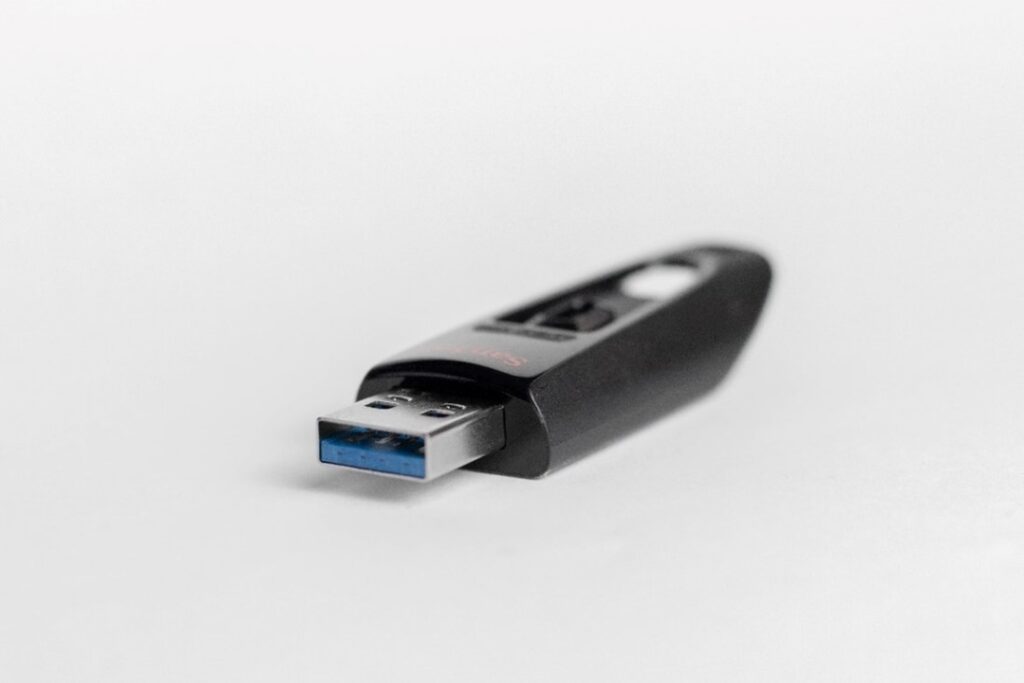Having physical security in place can be crucial when wanting to mitigate the risk of a potential data breach. Sometimes something as small as a USB stick can be worth its weight in gold. USB sticks or flash drives are perfect for portable storage and with some able to carry over 256GB of data, they can almost hold everything you need.
With an average USB stick weighing around 10-12g, they are not only easy to carry but unfortunately also easy to lose or steal. Their enormous capacity means that a misplaced USB stick carrying sensitive data can have terrible consequences for its owner.
As an example, a security worker at Heathrow Airport had lost a flash drive containing sensitive personal information and training videos, exposing names, dates of birth, and passport numbers of more than ten people. This mistake has cost Heathrow Airport around £120,000 in fines from the International Commissioner’s Office.

Taking Physical Security Seriously
High fines are serious consequences when a data loss occurs – reaching up to 4% in the case of a GDPR breach. The reputational damage from a major data loss can be even worse. Nevertheless, not a lot of businesses decide to invest in the protection of physical security of corporate devices. Simple steps such as employee training and hiring a complete IT support company can already make a significant difference in the physical security of a business.
Despite companies being willing to invest in antivirus protection, threat detection, encryption, and other logical security measures, physical protection is often overlooked. While everybody agrees that it is very important to protect corporate networks and data, only a few organisations take it as seriously as the more headline-grabbing data breaches.
In 2018 businesses spent nearly $100 billion on information security. Nevertheless, the number of global firms that experienced data breaches rose in the same year. It is, of course, crucial to invest in logical security systems, but many do so at the neglect of much more affordable measures that would have a major impact on data breach protection and prevention – physical security.
It seems like nowadays USB sticks are so common that we seem to have started taking them for granted. However, sometimes the smallest items or smallest mistakes have the power to cause us the most damage.
Ways to Protect Your Business
It is not surprising to find out that physical safeguards are taken far less seriously than logical security. Invisible threats are more threatening and mysterious than those right in front of our faces. Nevertheless, according to the FBI, laptop theft is one of the world’s top three computer crimes.
Businesses really have to learn to teach their employees that taking more care when it comes to using sensitive data is vital. For example, a rival from a competitor company could be able to read sensitive information of your laptop screen while you are working on the train to a business meeting in a different town – mistakes like this could cost insurmountable damage to your business.
Thankfully, physical protection is not only cheap, but it can also be easily incorporated into your everyday routine. Cable locks, for example, are an excellent way to guard against hardware theft and can be used if the employee has to be away from the device for a short period of time. Additionally, incorporating a privacy screen can prevent prying eyes from accessing sensitive data when in public. Lastly, educating employees so that everybody in your business is aware of the potential threat to corporate data and the severity of consequences of a breach will train them to be more careful when carrying corporate devices on the Tube, the pub, or on a business trip.
If you are interested in finding out more about data protection and how to protect your business from computer crime make sure you reach out to us here. If you are interested in a free IT consultation, make sure to fill out our IT Workplace Assessment.